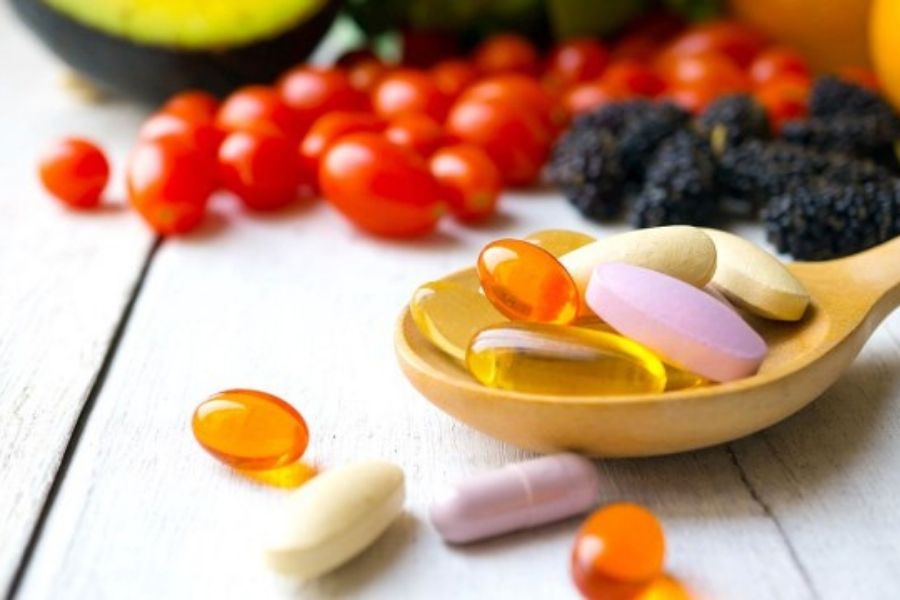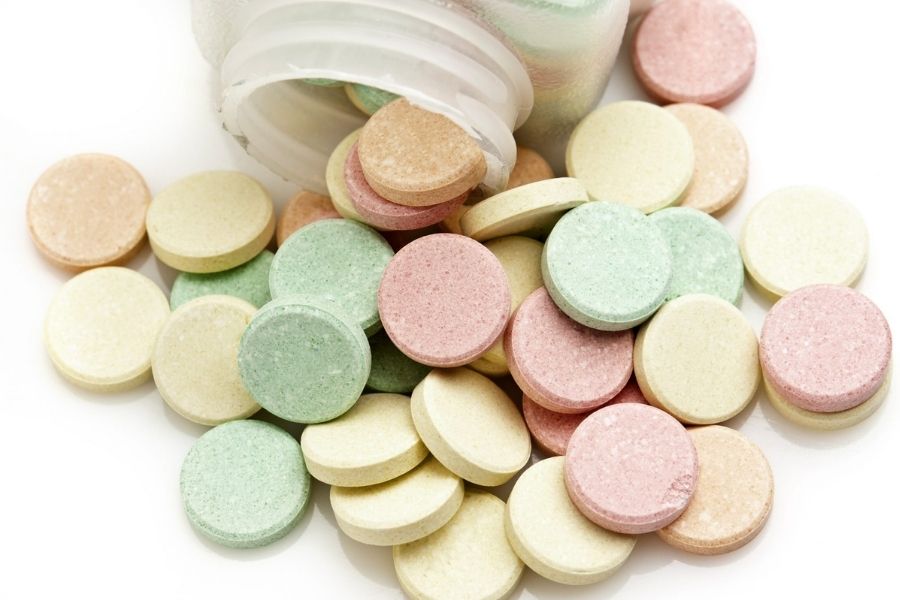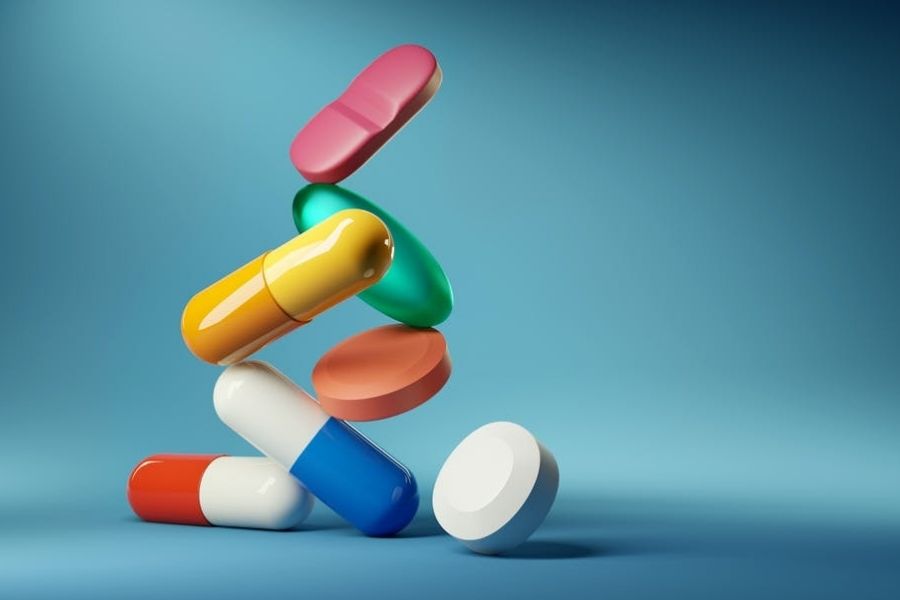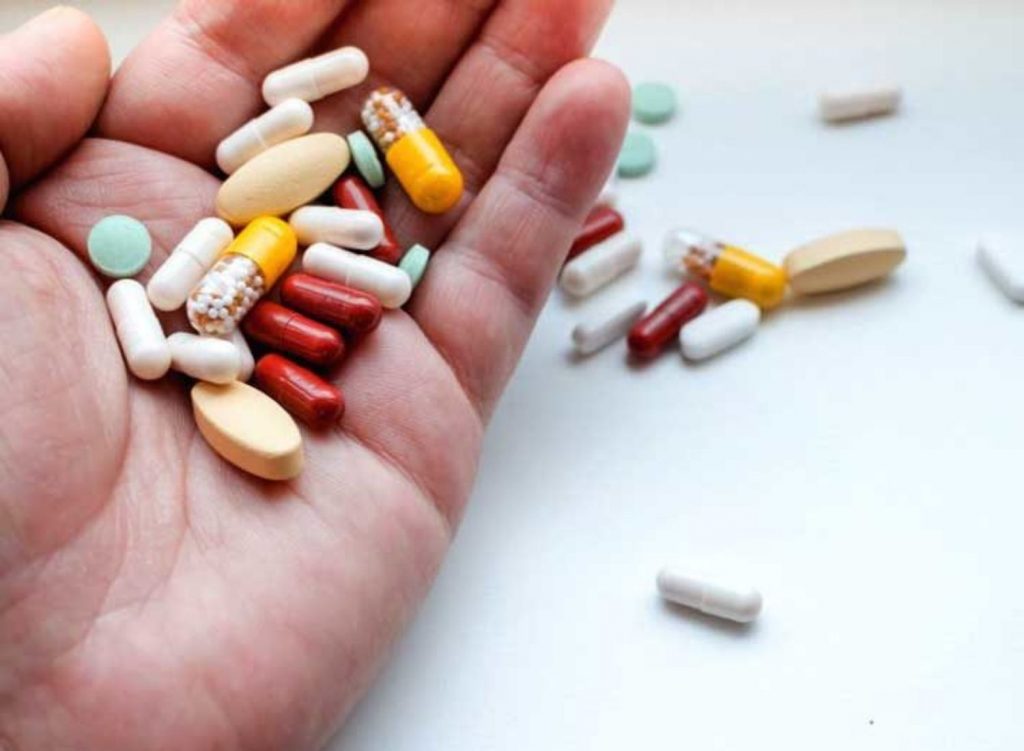We randomly take a few medications without a prescription, like multivitamins, calcium, vitamin D, and sometimes antibiotics and analgesics. When medicines are prescribed by doctors and purchased from the medical store, the pharmacist must explain when and how to take medication, but no pharmacists do. Anyway, let’s look at the food-drug interaction of common medicines we commonly use throughout our lives or look at the time of administration of a particular drug.
Most bioavailability of all tablets is good in an acidic medium, which is post-lunch. Usually, supplements are preferred to be taken during the day for better bioavailability and upset stomach. As we are taking only common drugs, let’s talk about the food-drug interaction of common medicines.
7 Food-Drug Interactions of Common Medicines
1. Calcium

We take a calcium tablet in the morning during breakfast and a cup of milk, assuming that both have calcium. Then we complain about the weight gain due to calcium supplements. When you take calcium with milk, the calcium isn’t absorbed properly and becomes difficult to digest; calcium present in the milk digests quickly, whereas calcium in the tablet takes time to digest as disintegration and metabolism have to be done. So, assuming that our body absorbs the extra calcium, we waste the supplement’s calcium as it does not get adequately absorbed due to already absorbed calcium from the milk.
2. Vitamin D

Cholecalciferol (vitamin D3) is a dietary supplement for people who have difficulty absorbing vitamin D in the body. Cholecalciferol is required to absorb calcium with ease. Vitamin D supplements can be taken at any time throughout the day, as the food remains in the stomach for almost 2 hours. Cholecalciferol can be absorbed in any media. Hence, one can take it in the late afternoons too.
3. Iron

Iron is a very common supplement that has to be taken by most of the population. It is available in the food we eat daily. Still, due to the wrong combination of bad eating habits, the body doesn’t absorb the iron properly. Normally, people drink tea or coffee with food or immediately after food. The same is with the supplement. If taken immediately after a meal, it hampers the absorption of the iron in the tablet. Iron supplements are taken post-breakfast preferably, not accompanied by tea or coffee.
4. Multivitamins

Most people take multivitamins without any prescription since B vitamins are water-soluble vitamins. So, there are no worries about their toxicity as their excess flows down in the urine. The right time to take these medicines is approximately an hour after the food, as they are not absorbed in acidic media. One can take this tablet at any time of the day, as food remains in the stomach for 2 to 3 hours, helping this medicine absorb properly.
5. Thyroxine

People make a very common mistake when thyroid medication is concerned. It has to be taken early morning before any food or drink, almost 10 hours on an empty stomach. Most people take medicine on an empty stomach but drink their tea immediately after the medicine, which is not recommendable. Ideally, nothing is to be taken at least half an hour after the medicine.
6. Antacids

Antacids are a very common medicine taken by many people to relieve acidity. Some people take it regularly; the ideal time to take this is half an hour before a meal. The absorption of tablets is proper in alkaline media. If taken post-lunch, no benefits of this medicine are given to the body. Also, antacids are taken for heartburn, indigestion, etc.
7. Antibiotics

Antibiotics are strictly taken by prescription and only under the physician’s guidance. Doctors sometimes do not have time to explain how to take medicine. Many people have acid reflux after taking antibiotics. An antacid is suggested before meals, whereas an antibiotic is taken immediately after meals. Or maybe during meals to avoid this. It should be a full meal to prevent acidity or discomfort in the stomach. Lactobacillus is often combined with antibiotics to prevent friendly bacteria from being killed by the antibiotics. It is necessary if antibiotics are to be taken for a longer period.
It is true that there are millions of individuals that have a problem when it comes to swallowing antibiotics. For starters, they do not taste well and some have a pungent smell as well. These individuals often use assistance in the form of food items or juices to swallow the antibiotics. According to leading medical experts, this is something that should be avoided at all costs. If you do not know how to take a gel pill without swallowing, you can always use an oral medical help. There are swallowing gels that are available in the market that can help you swallow your antibiotics with ease and without any discomfort.
Know the food-drug interaction of common medicines before consuming blindly. One mustn’t take medicines with cold water or warm water, but rather with lukewarm water or normal temperature water—no food to be taken immediately after the medicine except in some cases like antibiotics for few people. If food is taken directly after the medicine, it will hamper its ADME (Absorption, Disintegration, Metabolism, Excretion). It is the journey of medicine as it enters the body. We respect our body and should appreciate the journey of medicines for good health.







